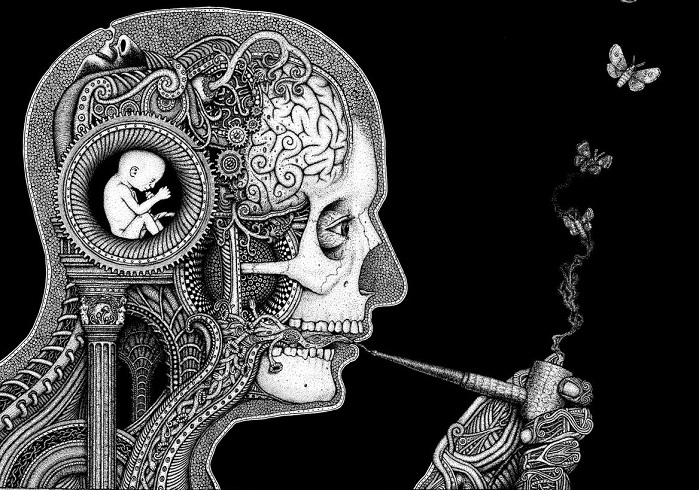Some thoughts about Dialectics and metaphysics
godflesh·@godflesh·
0.000 HBDSome thoughts about Dialectics and metaphysics
Etiological significance of the word "Dialogue" - "conversation", "talk". It is, however, a conversation that thought leads to itself. It goes from one concept to another and shows the contradiction of each subject, of every concept.
In ancient times - the ability to argue, the art of tracing the truth, by asking questions and revealing contradictions in the opponent's judgments. Socrates shows that for the truth a interlocutor is needed, a conversation, a dispute is needed. Often, however, his interlocutors are quite passive. Socrates asks questions and offers answers, and they answer only "yes" or "no". Then the dialogue - co-thinking - is entirely a work of Socrates himself. Plato continues in this direction. In his later dialogues, Plato began to develop his own thoughts. Thus the written dialogue is a conversation of the thinker with himself.

[image source](https://iai.tv/articles/philosophy-and-science-double-team-auid-401)
Controversy: Heraclitus has shown the universal variability of things ("Everything is flowing, everything is changing"), but also their contradictions (medicine is both cure and poison).Denial of controversy leads to Zeno's paradoxes. If we think the movement non-dialectically, we will either deny its existence, as Zeno did, or we can only demonstrate it. So did a disciple of Diogenes. Instead of showing how he can mentally present the movement, he got up and began to go - a non-philosophical way of presenting the movement. It must be shown in thoughts, not real. For movement, a concept is necessary, and it can only be dialectical. The arrow is and is not in the same place at the same time. The same goes for every moving thing. Dialogue is both the movement itself and its concept.
Negation - Everything is defined, ie. there is boundary, limit. But the boundary of the thing refers to his other. But if we ask ourselves what that is, we will have to say that it is the other thing, and so we come to their unity. But their unity is also something that comes to their own, and so on. Thus thought is self-diction, and dialectics is the infinite rhythm. The thought continually moves from one to the other, creating new content that is becoming more and more rich and richer. That is why dialectical thought is development, that is, moving from poorer to content-rich thoughts. This is also the nucleus of Hegel's dialectics.Feeling is an indeterminate state of man, and thought is definiteness, distinctness. Therefore, any thinking, ie. each definition contains the positive ("the thing") and the negative ("the other"). Between the thing and the other is their limit - it divides and connects.👍 apartphilosopher, mys, mdf-365, imperfect-one, shamoilnawabzada, catchawhale, sam7, cifer, fanta-steem, boomerang, fineartnow, flololol, vyaduka, phatima, bukiland, ivach13, mbappe, newhope, uglyogreh, snwolak, mangos, lightestofideas, andresaulait, openmedia, shortsegments, tmayd, red-rose, rarebooksleuth, phusionphil, wave.beads, pipokinha, funnystuff, baqir, santinhos, jorge-caceres, boostar, xrp.trail, maelstrohmblack, derrickprince, boogrrr, godflesh, zpzn, megusta, vieira, kehrwoche, isnochys,